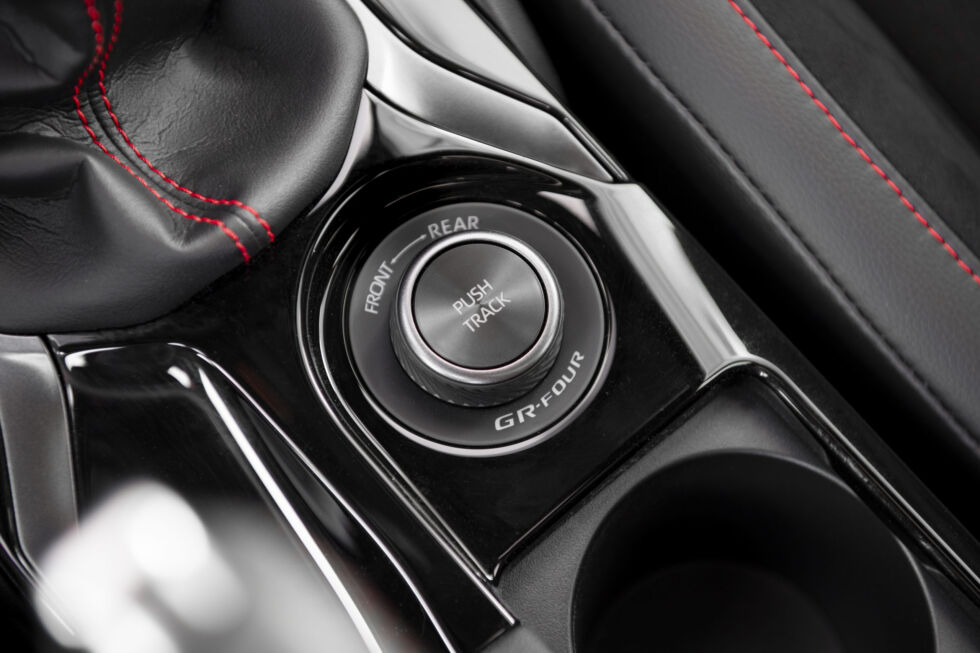
Although the vast majority of our car reviews are for hybrids and electric vehicles, we do still appreciate a good enthusiast’s car. All the more so when they’re tweaked versions of more pedestrian fare. Built in low volume and with something special under the hood? Count us in.
That brings us to today’s topic, the Toyota GR Corolla.
Some regular readers might be feeling a touch of deja-vu at this point; Toyota builds the GR Corolla in three different specifications, and in March we drove the most expensive, most focused of them, the GR Morizo Edition. With no back seats, a $49,900 price tag, and only 200 units imported for model-year 2023, the GR Morizo is probably a bit too hardcore for most.
The red car you see in these photos is the GR Corolla Core, which starts at a much more reasonable $35,900, a price that helpfully does include back seats, like more common, less racy Corollas. But there is plenty here to justify the 35 percent premium compared to a Corolla Hatchback XSE.

A Corolla hatchback is the GR Corolla’s starting point, but rather than move down a production line like all those boring driving appliances, it’s hand-assembled at a dedicated GR production facility. For starters, the body shell is treated to almost 400 new spot welds and more than 9 feet (3 m) of extra structural adhesives in order to strengthen it. Underfloor braces further increase stiffness.
The body looks a bit different, too, courtesy of muscular wheel-arch extensions and some functional air vents and scoops. It even has three tailpipes, an unusual trait shared with one of its rivals, the Honda Civic Type-R—but also the Ferrari F40.
Then there’s the powertrain. Under the hood is a 1.6 L turbocharged three-cylinder engine that first appeared in the GR Yaris—a car we don’t get here in the US—but in this case in a slightly higher state of tune, 300 hp (223 kW) and 273 lb-ft (370 Nm). That power and torque gets sent to all four wheels via a six-speed manual transmission.

The all-wheel drive system comes with a neat party trick—you can change the torque split on the fly via a rotary controller by the shift lever. By default the car starts off 60:40 front to rear, but a twist of the knob will set that to a much more rear-biased 30:70 split. Pushing the knob instead of turning it engages a track setting that’s a 50:50 torque distribution.
The wheels are larger than you find on a regular Corolla hatchback—handsome 18-inch glossy black multispoke alloy wheels wrapped in 235/40 R18 Michelin Pilot Sport 4s. Behind those spokes are upgraded brakes; four-piston aluminum calipers and 14-inch slotted, ventilated discs at the front, two-piston calipers and 11.7-inch ventilated rotors at the rear. Our test car was equipped with the optional performance package ($1,800) that adds front and rear torsen limited-slip differentials but also red-painted brake calipers.
https://arstechnica.com/?p=1963314

